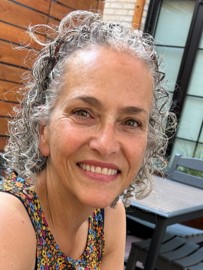Overview
Rural dentists encounter multifaceted challenges arising from limited access to care and the distinctive dynamics of community relationships. This course empowers dental professionals to navigate these complexities by making informed, ethical decisions in rural practice. The principles discussed are also applicable to other healthcare professions. Specifically, it delves into the American Dental Association guidelines tailored for rural settings, emphasizing patient trust and community welfare. Through engaging case studies, participants apply ethical principles to real-world scenarios. Additionally, the course explores cultural nuances within rural contexts, shedding light on how beliefs and values influence patient care.
Module Author

Deidre Callanan, RDH, DC, MPH
University of Colorado Anschutz – School of Dentistry
Dr. Deidre Callanan has a strong background in oral health policy having collaborated extensively with Head Start centers, school-based health centers, and both public and private school systems. An Assistant Professor at the University of Colorado School of Dental Medicine, she teaches courses in public health, ethics, and nutrition and is dedicated to improving population based oral health outcomes. Her passion lies with increasing health access and care for marginalized populations that may lack access to public health resources. Dr. Callanan’s research interests include emerging trends in dentistry, understanding oral health inequities, and population health.
Learning Objectives
- Define the terms, ethics, values, and beliefs in the context of rural dentistry.
- Examine the unique ethical dilemmas that rural dentists may face in practice.
- Clarify the specific obligations outlined in the ADA’s Code of Professional Conduct and emphasize their importance in maintaining ethical standards in rural dentistry.
- Summarize and implement the five principles used in making ethical decisions.
- Analyze and discuss how the ethical principles can be applied to resolve issues through case studies.
